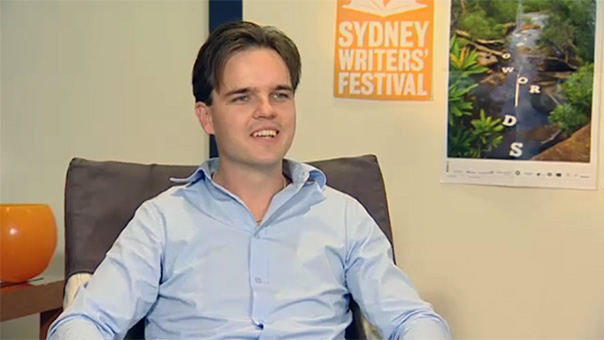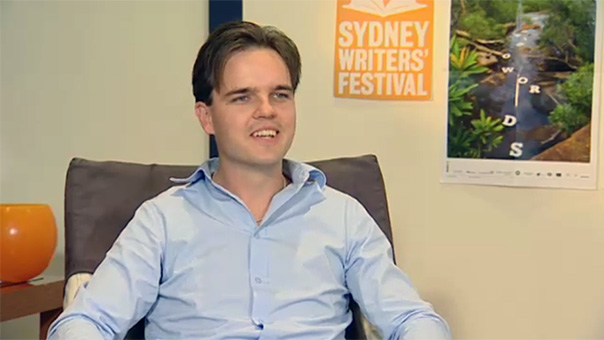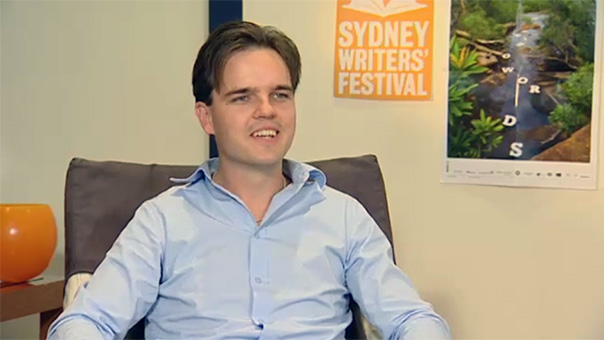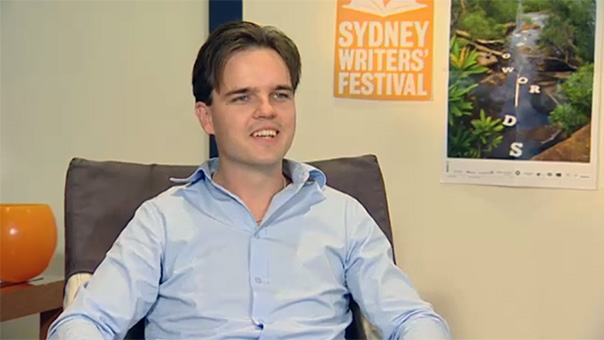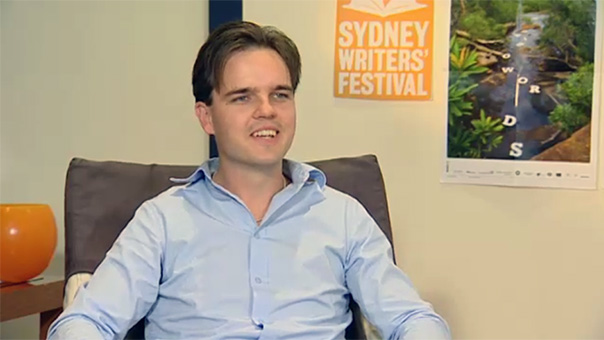Plot
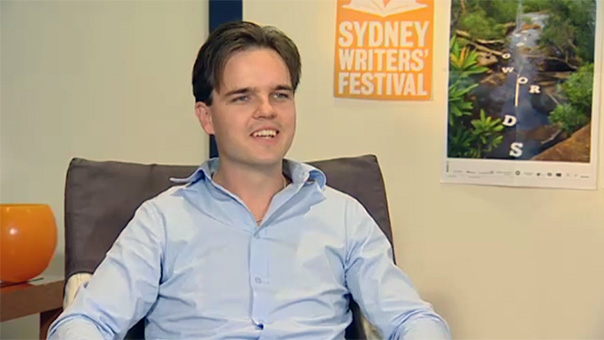
NSW DoE 2015
Viewing guide
-
Where could writers find inspiration for plots?
-
What techniques could help develop a story plot?
-
What are the pros and cons of sticking with the original plan when it comes to plot?
-
How does Tristan ‘build the world of the book’?
-
How does being an actor and film-maker influence or support Tristan’s role as a writer?
-
What other personal roles or skills help you in your creative writing?
-
Explain what Tristan means about everyone feeling a bit ‘weird’ and ‘outside of what the norm is’. How do these ideas help Tristan to write?
-
Tristan believes that working ‘through some of your own ideas on your own family’ means they come into the story. What other benefits come from talking through your ideas for writing?
Interviewer: How do you develop the plot of a novel?
Tristan Bancks: I tend to start off with free writing and then I go to the step-outline cards. And I'll put an idea for each chapter, just in one sentence, and I'll stick those sort of small cards up on the wall and I'll shuffle them around and start to find the plot. And it just helps me, when I actually start writing the book I'll veer off, away from that outline, but I always know that if I go too far and I start going off on a tangent and the story's not making sense and I'm not liking it, I can always look back at the cards and say, 'Oh, that's what I was trying to do' and I can rein it in. I can bring it back and remember that that skeleton was there for me.
Interviewer: How do your acting and film-making experiences influence your writing?
Tristan: I think acting and film-making have helped me as a children's writer in that I always want to make the process visual. I'll find lots of images on the web, at Getty Images or Flickr or iStockphoto, these photo-sharing websites, and I'll put them up around my workspace or make a little slide show out of them and they help to build the world of the book for me. It's something that I used to do when I was making films as well. I'd fill a whole wall with images, you know, for each scene in the film. And it really helps to break it out of just words on a page, which can get really dull. And suddenly you've got this, you know, it's full-colour reality and you start to write perhaps more engagingly. So I think from a film-making perspective that helps. I think acting helps from a dialogue point of view, that perhaps you hear, you're tuned to hearing the way kids are speaking, or the way other people are speaking. And it's a bit like improvisation as an actor, only you're doing it on the page.
Interviewer: In The Rules of Cool you explore the themes of individuality and conformity, as well as friendship and family relationships. Why are these themes important to you?
Tristan: I think individuality and conformity, they just ... I mean I didn't, sort of, try to control what was in the book. But looking back I can see those themes have come through. And I think it's that probably every kid, and every adult, really, always feels outside of something. Even if you see someone as being really mainstream, or really popular, or something, often even those people feel really isolated and I think we all kind of feel lonely in some way. Or we all feel that we're kind of weird, or outside of what a 'norm' is, whatever. So I like the idea of exploring those ideas. I've always felt like a bit of a kook, you know, following my own path and, you know, telling stories in lots of different ways is an unconventional way to live your life. So I think those themes are interesting to me. And I think friends and family came into the story because I think you work through some of your own ideas on your own family and also it gives the character something really ... a strong drive.
